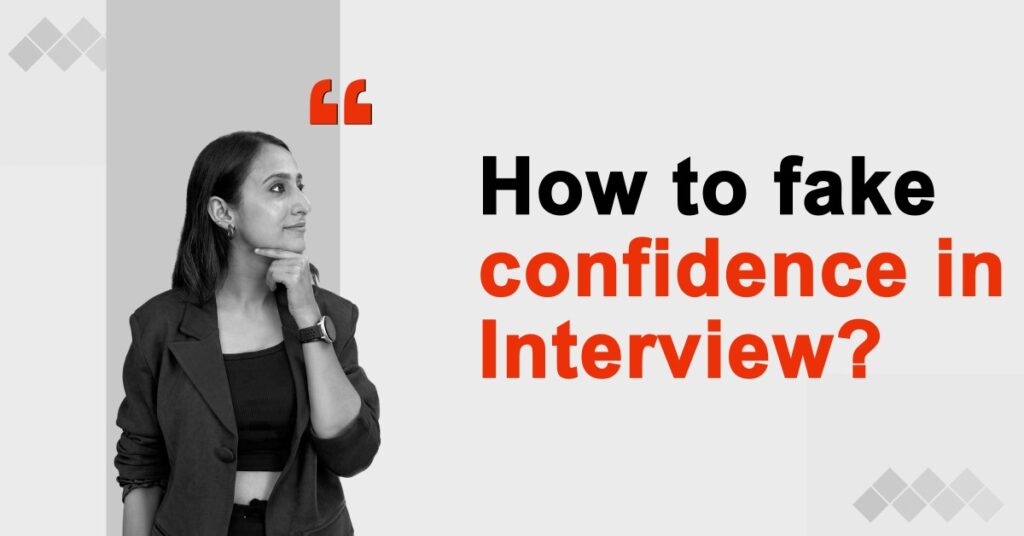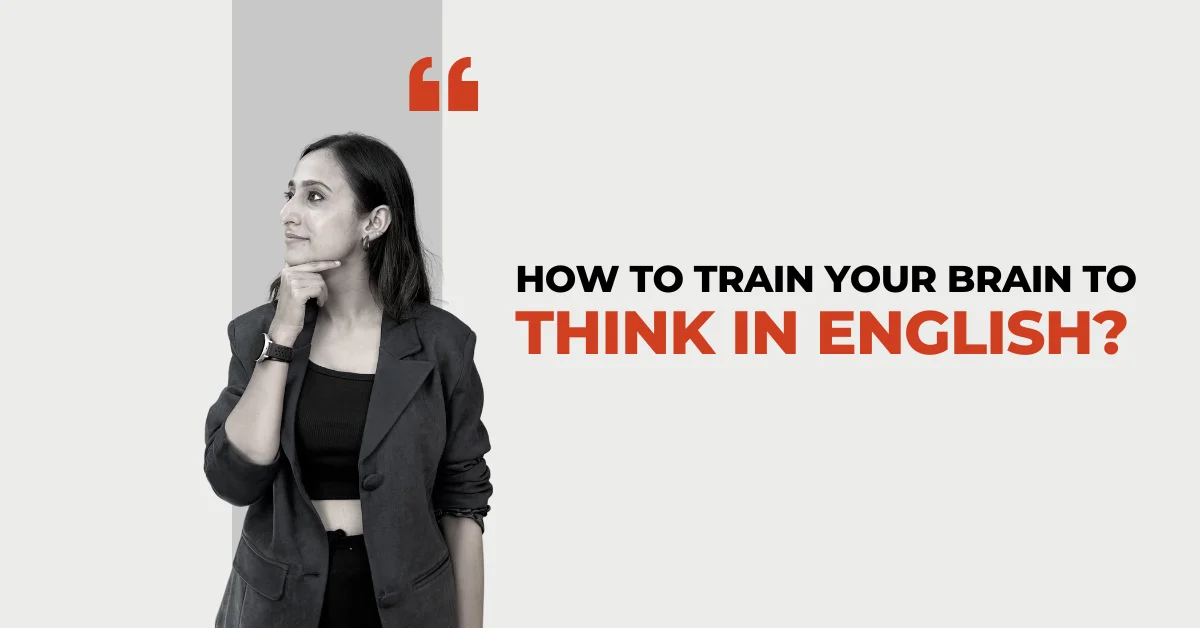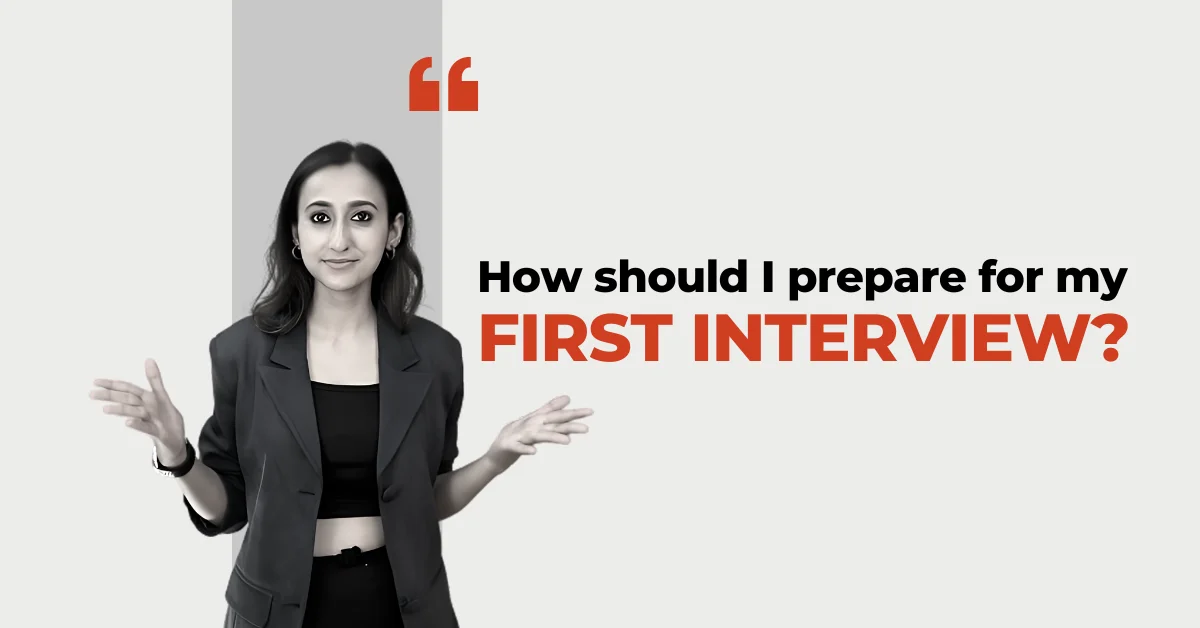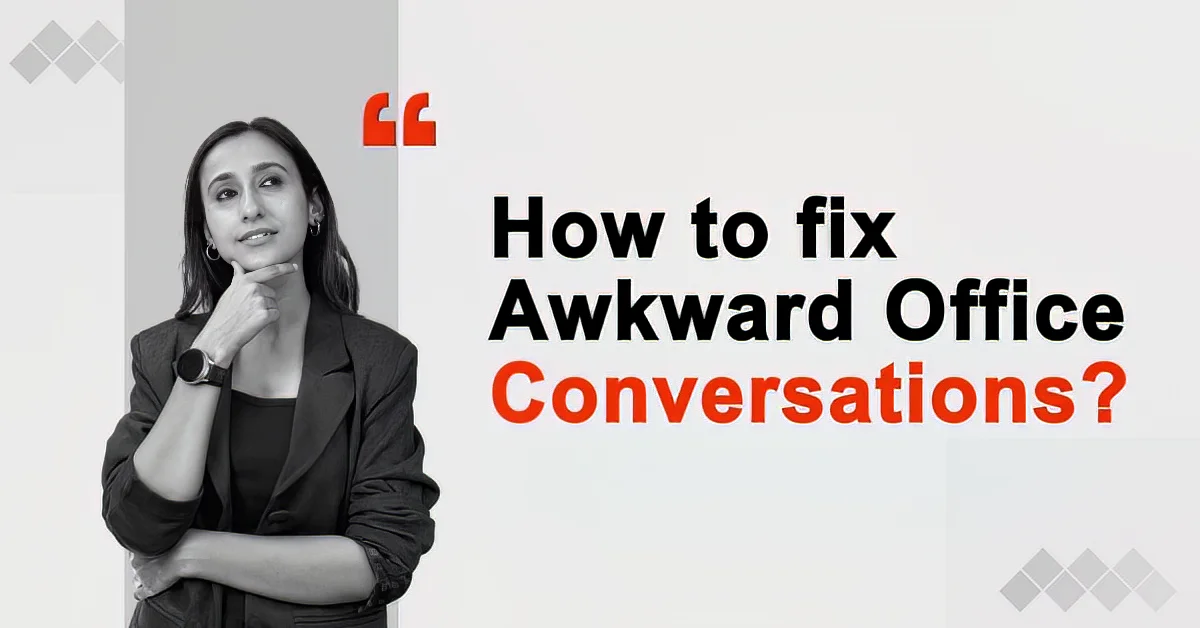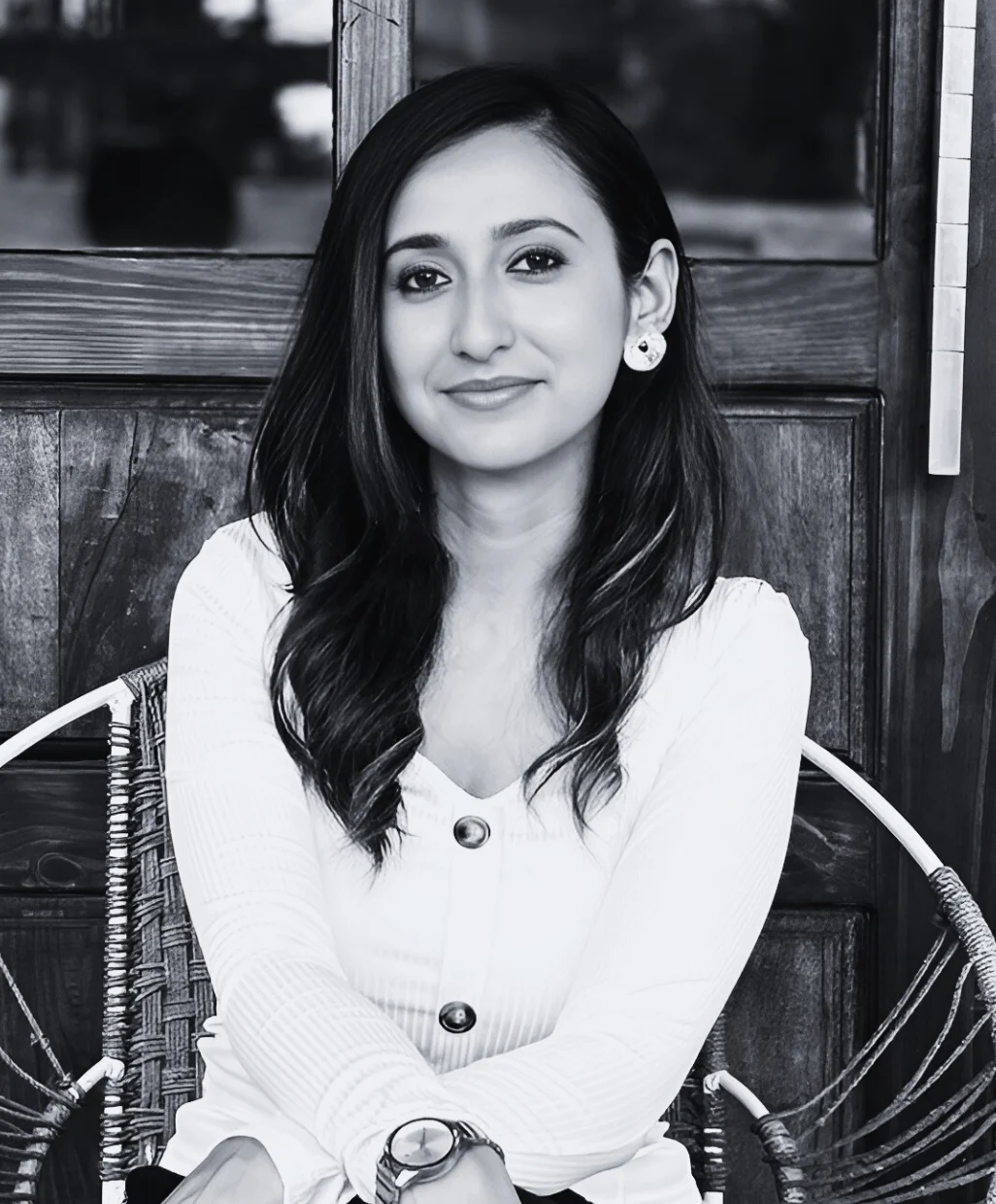As a communication coach, I have lots and lots of stories associated with different working professionals who, once were facing confidence issues during an interview, are now excelling in their fields. How you must ask? The answer is by faking it. Yes, you can fake confidence in interviews.
Wanna know how? Let me share the story of our student Jay. Jay had it all, a perfect resume, impressive qualifications, and a rich experience but the only thing he lacked was Self-confidence for a job interview. Each time he walked for an interview, he felt paralyzed with self-doubt, convinced that his lack of confidence would hinder him from giving a perfect performance. Recognizing the need for guidance and following the review of one of his friends who had similar issues, he reached out to us.
Jay’s journey with us begins by following a simple concept: Confidence can be faked until it becomes a reality. Let’s understand the “Importance of Confidence”. Confidence can make a big impact and impression during an interview. It could become a true turning point between landing a job or getting
overlooked. Even if you don’t feel confident, presenting yourself in such a way can create a positive and long-lasting impression. But are there any strategies that can help you fake confidence in an interview? Of course, there are! These strategies helped Jay and will surely help you in
getting your dream job.
How to fake confidence in interview?
Research about the company
Confidence builds when you know the deal well! Research the company and the job description, this knowledge allows you to give perfect answers during the interview. I often encourage my students to expand their vocabulary by reading their field-related articles or publications to get a better grasp. Also, Be prepared to align your skills with the job description and provide them with ideas of how your skills will help their firm to improve for better. The research will also provide you with an edge over the interview. Always stay updated on the recent news of the company, this includes new launches or changes in leadership. Ask open-ended questions during the interview as it shows interest, also shows your preparedness, and helps you engage in a meaningful discussion.
Share your experiences
When you share your journey it becomes relatable and meaningful. You can do it by briefing them about your background and key milestones as this will help the interviewer to understand you better and relate to you more and will also pave the way for deeper conversations. When sharing your experiences try to relate them to the job requirements, for example, if the job emphasizes on team work then discuss projects related to collaboration and how you contributed to the team’s success. Don’t be afraid to share setbacks and drawbacks along with the challenges you faced and how they contributed to your development. But do not over-share your weaknesses, try to mold them into your favor. Reflect on how your experience shaped your professional growth and development and the skills you gained from them.
Mastering body language
Your posture and gestures shows how interested you are in the ongoing conversation. I always instruct all my students on this subject, we take separate sessions on mastering body language. Mastering body language is a crucial skill for conveying confidence during an interview. Let’s discuss it in brief:
- Posture: Standing with your back straight gives you a feeling of confidence. Even slouching and hunching affect self-confidence and productivity and also show unprofessionalism. Practice sitting straight and standing straight to project better posture and attentiveness along with confidence.
- Eye contact : Eye contact is important since it shows that you are listening and keenly interested in everything that is being discussed, keeping better contact with the interviewer. However, do not overdo this by looking too long. This will make the situation very uneasy for the interviewer.
- Facial expressions: A genuine smile makes you appear more friendly and cheerful, a Positive attitude also goes a long way in achieving the goal.
- Nodding occasionally: It is a part of informal communication, it shows that you are listening And that you are participating actively in a conversation. Also that you are complementing interviewers’ points.
- Hand Gestures: Proper use of hand gestures makes you appear more passionate and alive. Just be careful not to overdo it, don’t go too crazy with those hand movements, it may interfere with others’ learning process.
Slow down your speech
It means when responding to questions take a moment to think and then answer, and use pause effectively especially to present any of your thoughts. Speaking slowly allows you the time to think before you speak and reduces nervousness. Slow speaking naturally encourages deeper breathing which helps you calm your nerves and anxiety. Slow speaking also invites the interviewer to engage more with what you are saying and what is better to get heard well. Also, it helps you to get focused on the conversation rather than getting lost in your trail of thoughts. During our practice sessions with Jay, we used to rehearse answer-giving at a slower pace, this helped Jay a lot to get comfortable with this approach.
Engage with interviewer
Engagement with the interviewer makes the conversation more natural by easing your anxiety and demonstrating your interest. During our mock practice sessions with Jay, I encouraged him to engage more either with open-ended questions or by responding thoughtfully to the interviewer’s comments. I advised Jay to build on what interviewers say, for example, if the interviewer mentions any recent ongoing project, he should respond “That sounds great ! What are the challenges the current team is facing? “ this type of response creates a vibrant conversation and shows genuine interest. Engaging actively means Connecting personal experiences to ongoing conversations. When an interviewer talks about a particular skill you can share your experience related to that particular skill. During sessions, I used to guide Jay about the importance of recognition and appreciating interviewers’ Insights, this will create a friendly atmosphere.
Follow up with Gratitude
After the interview do send a thankful email expressing gratitude for providing you with this interview opportunity. Highlight something specific in the email, that came up during the interview process, this could be shared values or projects. Clearly state your continued interest in the position and how your skills match the job description. Thank them again and express how you look forward to the next step. Let me share a format of a follow-up email that will ease your work.
Example email:
Subject: Thank you for providing this opportunity
Dear [ name of the interviewer]
I hope this message finds you well. I wanted to extend my warm regards and heartfelt thanks for this interview opportunity for the [Job title] position on [Date]. I truly enjoyed our conversation and learned a lot about [ mention specific topics that occur during the interviews or any particular aspect of the
company or job]. I’m very much looking forward to the possibility of joining [ company name
should be mentioned here ] and contributing to [ mention any specific project related to the job role or you can even mention the goal of the job position]. I believe my skills [ mention your relevant skills which best fit the job] would pair perfectly with your team/company. Thank you once again for your time and consideration. I look forward to the possibility of working together. Please feel free to reach out if you need any further information from my side.
Best regards
[Your name]
[Your contact number ]
[Your LinkedIn profile or Website if needed]
A thoughtful follow up will show your interest and professionalism , leaving a good long lasting impression of confidence. Let me destress you a bit , faking confidence doesn’t mean putting on a whole drama , it means adopting various strategies and building your character through practice. As jay’s example illustrates, even possessing such brilliant skills and grades , you are gonna feel self doubt but it doesn’t mean that you can’t overcome it . Do remember that it is a process which requires practice andproper preparation. By implementing these techniques you too can excel in your interview. Embrace the challenge and trust your ability, with implementation of these strategies through regular practice, watch how your fake confidence journey will reach to a genuine confidence level -“ FAKE IT TILL YOU MAKE IT “

